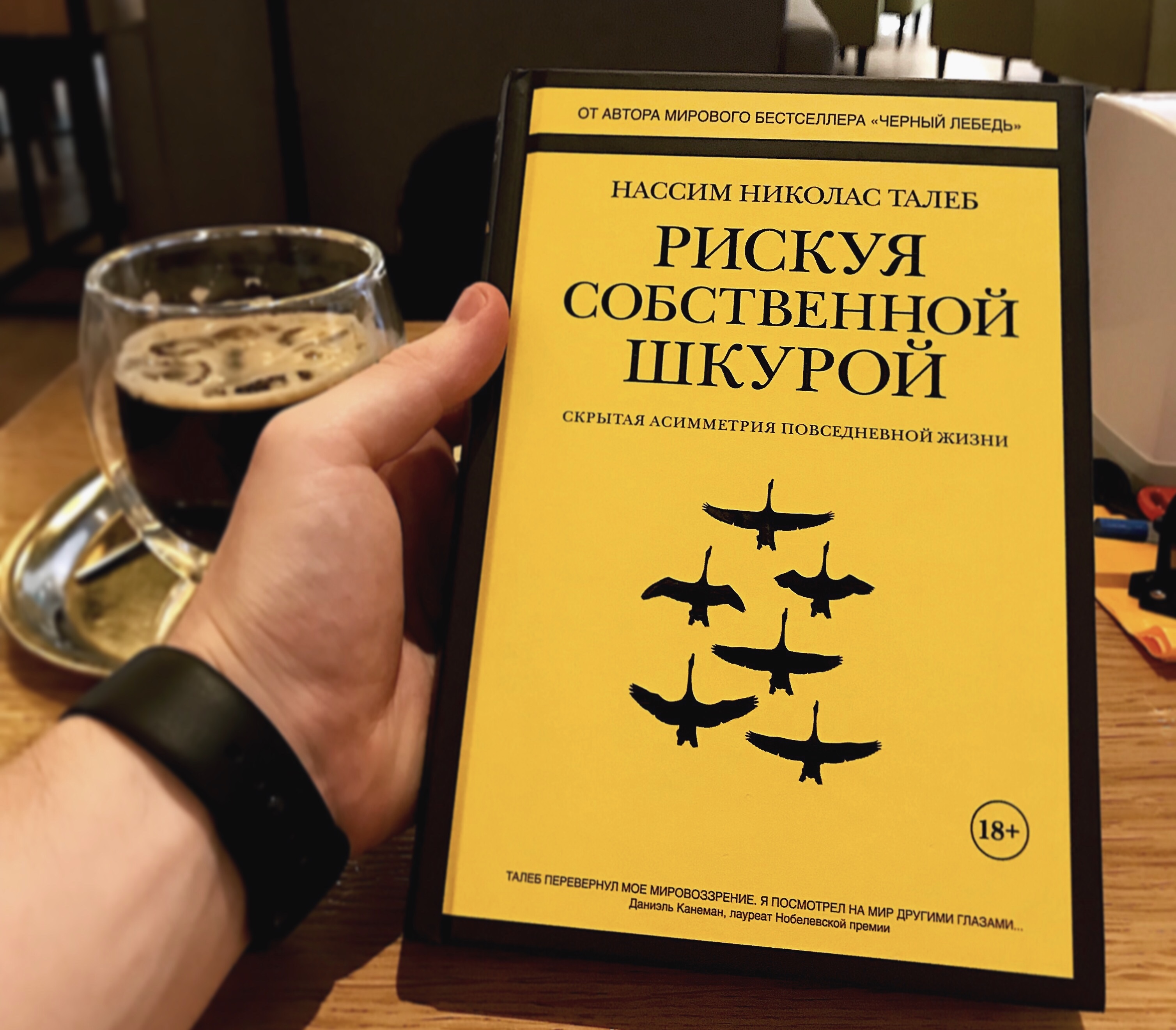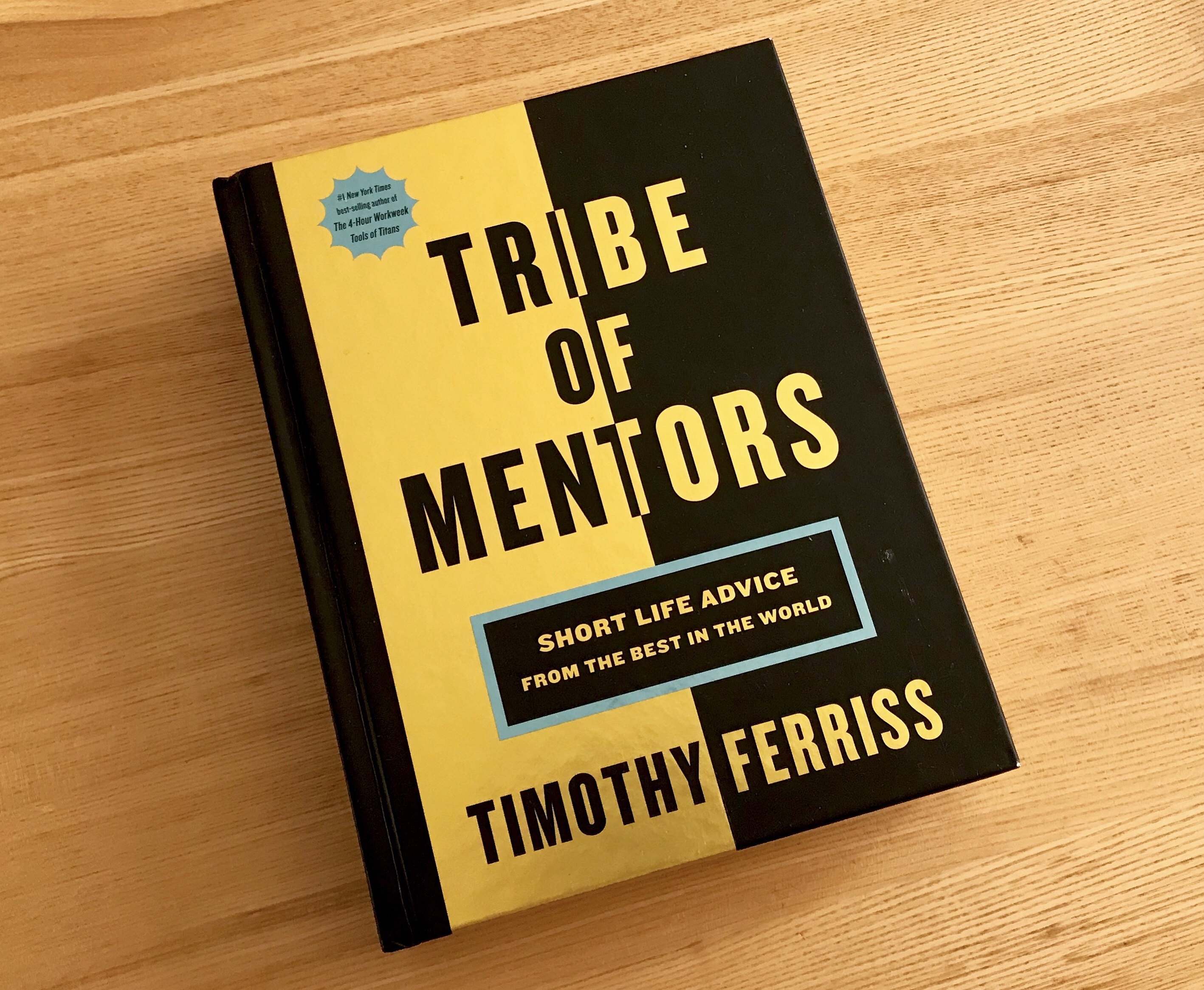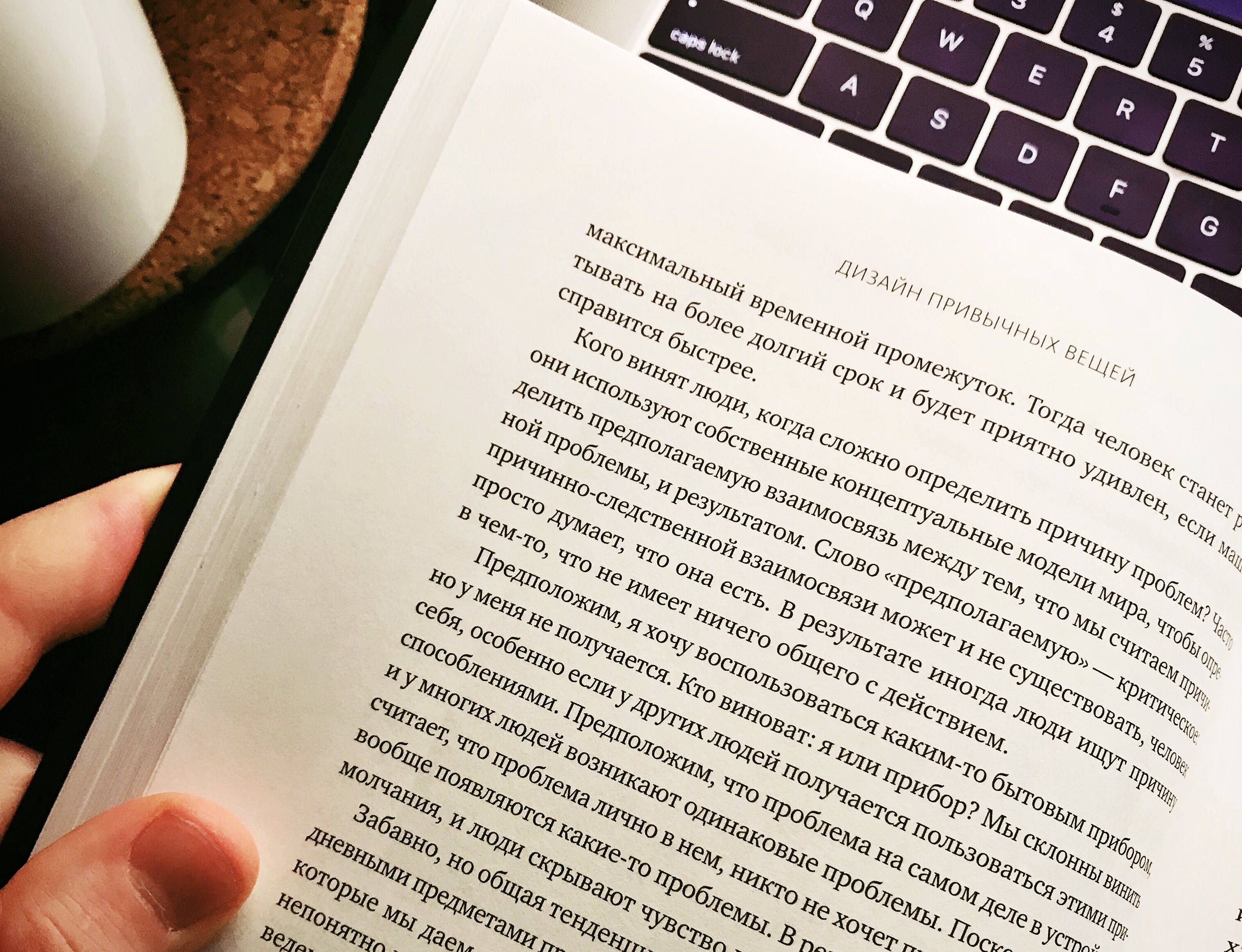Useful review. 28 books that influenced my thinking, inspired or made better

I do not like to read book ratings for two reasons. First, most often they are a list of books selected by an unknown author according to unknown criteria. Secondly, the descriptions of books more closely resemble advertising texts of publishing houses that are hard to believe.
Because of this, most of these materials are of little use, despite the fact that they may contain intelligent books. I have long wanted to write a useful review that will not impose certain materials, but will allow the reader to choose the most appropriate.
***
Over the past five years I have read more than 150 books and during this time I managed to rethink the process of reading and understand which books really influenced me and which only caused a temporary surge of emotions. In this review, I selected only those books that influenced my thinking, inspired me to make important decisions, or helped me figure out a new topic.
')
For each book, I added a description that will reveal how it influenced me, and attributes that will help you find a book of a particular style. These attributes are:
Practice - tips like “take and do”.
Motivation - inspirational stories.
Knowledge - a deep analysis of the topic.
At the moment, I like deep books that talk about fundamental things and do not give specific advice. There was a time when I needed motivation or practical advice for understanding a new topic. All these books have influenced me, so choose the ones you need at the moment.
In the first part of the material, I will talk in detail about the most beloved books, and in the second, a little shorter, about those that did not have a strong influence, but at the same time made me better.
Key books

Ray Dalio: “Principles. Life and work "
Practice, motivation, knowledge.
The book begins with the author's autobiography, which is # 67 on the Forbes global list and the founder of the most successful hedge fund in history. The path of Ray Dalio was not easy. At some point, he lost all of his clients and colleagues, and from scratch he began to build his company, Bridgewater Associates, which currently manages an asset of more than $ 150 billion.
Throughout his life, Ray Daliot analyzed the results of decisions made (his own and others') and on the basis of these data he formulated principles that help to achieve more in his personal and professional life. The principles are very specific, which gives the impression that the author has managed to understand many of the fundamental laws of our world.
Nassim Taleb: "Black Swan", "Anti-frailness", "Fooled by accident", "Risking his own skin"
Knowledge.

Nassim Taleb is my favorite author. First, his books helped me to get rid of many stereotypes and make sounder decisions in my career (here, of course, time will tell, but at the moment, the results are encouraging). Secondly, I like his style.
Each book by Nassim Taleb contains a key idea, which for ≈400 pages is fascinatingly viewed from various angles, during which the author manages to ridicule several authorities in conviction and express a number of deep thoughts.
While reading, I sometimes laugh, then think deeply. But, the main thing is that the described philosophy helped the author to earn good money. In other words, it was tested by reality.
Daniel Kahneman: Think slowly ... decide quickly
Knowledge.
Daniel Kaneman is one of the most famous psychologists in the world, whose book shows how often people make stupid mistakes in everyday situations. "Think slowly ... decide quickly" - one of the few books that teaches you to think sensibly.
Yuval Noah Harari: “Sapiens: A Brief History of Humanity”, “Homo Deus. A brief history of the future "
Knowledge.
In the first book, the author tells how we ended up where we are now. After reading it, the absurdity of many modern traditions and institutions is revealed. Since understanding their origins, we can determine the cause-and-effect relationship of many modern things and, if necessary, break free from their influence.
In the second - he reflects on the topic of where we can go (and what we can become). The author talks about modern research in the field of medicine, psychology, artificial intelligence and suggests where these discoveries can lead humanity. Some assumptions are very strong and make you think.
Richard Dawkins: "Selfish Gene"
Knowledge.
Dawkins is not easy to read and you should not hope for a complete understanding of the material, but the main ideas about evolution are clear from the first chapters and sober the brain well. Almost everyone knows about the theory of evolution, but thanks to this book, understanding becomes deeper and is immediately reflected in the perception of the world.
Tim Ferris: "Tools of Titans", "Tribe of Mentors", "How to work four hours a week"
Practice, motivation.

Tim Ferris is known to most readers for his book How to Work Four Hours a Week. I even know those whom this book made me quit my job and start a personal project. A few years ago, this book influenced me too, having told a lot about effective work (I did not work at that time, so I had nothing to throw).
Tools of Titans and Tribe of Mentors are completely different books. In them, the author collected the answers of dozens of successful people from various fields to very thoughtful questions. For me, these books have become desktop, and I often return to them.
Arnold Schwarzenegger: “Remember all. My incredibly true story. ”
Motivation.
I remember the first time I saw this book in the list of recommendations of the designer Tobias van Schneider and I thought that the history of the bodybuilder will teach me very little. But over the course of several months, I regularly heard references to her from other successful people and decided to get to know the story of Arnold better. Of course, I knew that besides bodybuilding, Arnold became a successful actor and governor of California, but did not know how.
While reading, the author’s determination is the most impressive. At each stage of life, he knew his goals, always thought ahead and tried to increase the probability of success of any of his undertakings.
His entrepreneurial approach to any business and mind (Arnold knew mathematics well) is an excellent example of how people achieve meaningful results, despite the difficulties on the way. Arnold is most associated with the word “success” because I was able to achieve decent results in four different areas: sports, business, cinema and politics.
Kelly McGonigal: “Willpower. How to develop and strengthen "
Knowledge.
The author claims that willpower is a muscle that can be trained and used correctly. And it is involved not only during work, but also in everyday things, so its rational use is very important for a full life. The book helped me understand the causes of emotions and explained it from a scientific point of view.
Maxim Dorofeev: “Jedi technology. How to raise your monkey, empty the inbox and save the thought "
Practice.
I read a lot of books on productivity and at some point they all began to cause my antipathy. But after numerous recommendations, I decided to read it and it turned out that Maxim managed to collect key knowledge on productivity under one cover, avoiding trivial reflections.
The book discusses the planning of personal projects, the correct preparation of tasks and methods for their implementation. Maxim introduces the concept of "thoughtfulness", which represents a person’s intellectual abilities and teaches how to use it correctly.
Brent Schlender, Rick Tetsley: “The Making of Steve Jobs”
Motivation.
I liked this book much more than Isaacson’s official biography (they say that to Steve’s loved ones too). It does not contain well-known stories about the development of Apple, but instead, the authors tell us how the personality of Steve Jobs changed throughout his career.
Brent Schlender and Rick Tetsley show Steve Jobs much wider than other authors of books and films. It tells about the numerous mistakes in the development of the company, which were made by the founder of Apple, and how it behaved in different situations.
Phil Knight: “The shoe seller. The story of Nike, told by its founder "
Motivation.
Besides the fact that it is always interesting to learn more about the history of the development of successful companies, there is something else in this book. Few people know that Phil Knight only spent the first years of his career reselling Asian sneakers in the USA and, having only been refused further cooperation, he decided on a new initiative that many years later made him the founder of one of the most famous brands in the world. This is a very instructive and fascinating story.
Jason Fried, David Heinemeyer Hensson: “Rework. Business without prejudice "," It doesn’t have to be crazy at work "
Practice.
Last week, I read the new book from the founders of Basecamp, "It Doesn't Be Crazy at Work." She, like the previous ones, offers an alternative view on business development.
Instead of scaling and changing the world, the authors propose to remain at a comfortable level, which allows business to gradually improve, and company employees live their lives outside the office (although most Basecamp employees work remotely).
The authors cite many tips on the organization of corporate culture, product management, effective work, and communication with customers and company employees.
Book blitz

Igor Mann: "Number 1. How to become the best in what you do"
A brief description of the skills that should be possessed by “Number 1” in his own business, according to Igor Mann.
Tony Schwartz, Jim Loher: "Life at Full Power"
This book tells you that energy management is much more important than time management.
David Schwartz: “The Art of Think Big”
The book, which motivates great achievements, at the same time, gives practical advice.
Cal Newport: “Stop dreaming, do business!”
The author offers the concept of “career capital”, which helps to look at your career in a new way.
Donald Norman: "Design of the usual things"
The book, which by numerous examples shows the essence of the work of the designer.
Peter Thiel: “From zero to one. How to create a startup that will change the future "
Reflections on startups of one of the most famous investors in the world.
Ed Catmell, Amy Wallace: “The Corporation of Geniuses. How to manage a team of creative people?
The founder of Pixar to share in-depth tips on managing a creative team.
Ayn Rand: "The Source"
A fiction book that teaches healthy selfishness and does not fall under the influence of the majority.
William Zinser: "How to write well"
A classic book for those who write in the nonfixed genre.
Instead of conclusion
I read the best books on the recommendation of people whom I respect, and not thanks to a “bestseller” label or a beautiful description.
I transfer all the notes from the books I read to Apple Notes, to which I occasionally come back and diligently think about how to put these ideas into practice.
Usually reading a book takes me three days (from one to a week). I am not keen on speed reading, all thanks to experience. I read from 0 to 90 minutes a day.
First of all, I draw attention to the author, and not to the description of the publishing house or being in the list of popular books.
I respect people who do not read, but at the same time, they do a lot.
I would be glad if you recommend books that have influenced you.
Source: https://habr.com/ru/post/429724/
All Articles